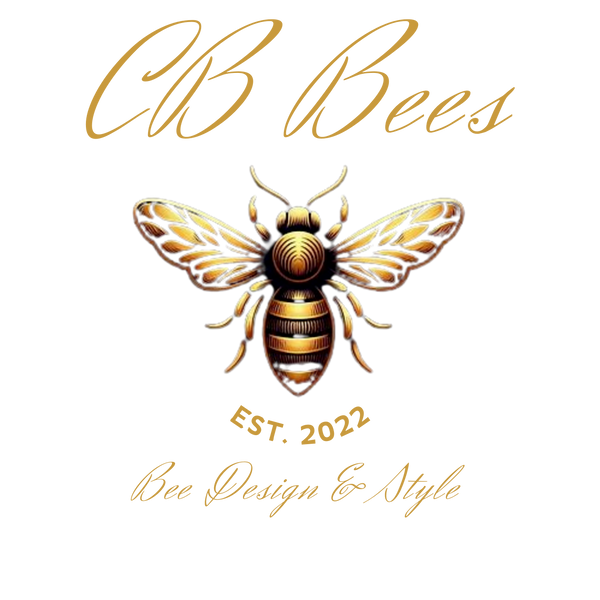The Decline of Bees in the UK: A Decade of Crisis

Introduction
Over the past decade, the UK has witnessed an alarming decline in bee populations, posing a serious threat to biodiversity, agriculture, and food security. Bees, both wild and domesticated, play a crucial role in pollination, ensuring the growth of fruits, vegetables, and flowers. However, due to a combination of habitat loss, climate change, pesticide use, disease, and industrial farming practices, their numbers have been dwindling at an unprecedented rate. This article by CBBees explores the key factors contributing to this crisis, the impact on ecosystems, and the urgent actions needed to protect and restore bee populations.
The Scale of Bee Decline in the UK
Studies over the past ten years have revealed shocking statistics regarding bee population losses:
-
More than a third of UK bee species are in decline.
-
17 species of bees have already gone extinct in the UK.
-
Since 2013, UK honeybee colonies have decreased by over 30%.
-
Wild pollinators such as bumblebees and solitary bees have seen declines of up to 50% in some areas.
-
Farmland and urban expansion have led to an 80% loss of flower-rich meadows since World War II, reducing vital foraging habitats.
Key Factors Driving Bee Decline
1. Habitat Loss and Urbanization
The destruction of wildflower meadows, hedgerows, and forests for agriculture and urban development has significantly reduced bees' natural habitat. Intensive farming has replaced diverse landscapes with monoculture crops that offer little nourishment for pollinators. Additionally, urban expansion has led to fewer green spaces and floral resources, making it harder for bees to find food and nesting sites.
2. Pesticide and Herbicide Use
The widespread use of neonicotinoid pesticides, despite partial bans, continues to be a major threat to bees. These chemicals impair bees' ability to navigate, forage, and reproduce, ultimately weakening colonies. Herbicides contribute to the problem by eliminating wild plants that bees rely on for nectar and pollen.
3. Climate Change
Fluctuating temperatures, increased rainfall, and extreme weather events have disrupted seasonal flowering patterns, affecting food availability for bees. Warmer winters can cause bees to emerge from hibernation too early, only to find that flowers are not yet blooming, leading to starvation.
4. Disease and Parasites
The Varroa mite, a deadly parasite, has devastated honeybee colonies across the UK. These mites weaken bees by feeding on their bodily fluids and spreading viruses. Additionally, fungal and bacterial infections such as Nosema and American Foulbrood have increased, further endangering bee health.
5. Industrial Farming Practices
Modern agricultural methods have reduced the diversity of crops and eliminated the natural habitats that once flourished alongside farmland. Large-scale monocultures provide limited nutrition for bees, making it difficult for pollinators to survive year-round. The removal of hedgerows and reliance on chemical fertilizers have further degraded the ecosystem.
The Impact on Ecosystems and Food Security
Bees are essential for pollinating over 70% of crops and wild plants in the UK. Their decline has far-reaching consequences:
-
Reduced crop yields: Fruits, vegetables, and nuts depend on pollinators. A lack of bees means lower agricultural productivity and potential food shortages.
-
Economic impact: The UK’s agricultural sector relies on bees for pollination, contributing an estimated £650 million annually to the economy. A decline in bee populations threatens farmers' livelihoods and increases food costs.
-
Biodiversity loss: Bees support entire ecosystems by pollinating wild plants, which in turn provide food and shelter for other wildlife. Their decline leads to a chain reaction of biodiversity collapse.
Efforts to Protect and Restore Bee Populations
Despite these alarming trends, conservation efforts are gaining momentum. Several initiatives have been introduced to support bee populations:
1. Government Policies and Bans
The UK government has implemented restrictions on certain pesticides, including some neonicotinoids. Additionally, agri-environment schemes encourage farmers to plant wildflowers and protect pollinators.
2. Conservation Programs
Organizations like The Bumblebee Conservation Trust, Buglife, and Friends of the Earth have launched initiatives to restore wildflower meadows, create bee-friendly habitats, and raise awareness about pollinator conservation.
3. Sustainable Farming Practices
Many farmers are adopting bee-friendly practices, such as planting cover crops, maintaining hedgerows, and reducing pesticide use. Organic farming, which avoids harmful chemicals, is also on the rise.
4. Urban Pollinator Projects
Cities across the UK are introducing pollinator corridors, green roofs, and community gardens to provide food and nesting sites for bees. Programs such as London’s Pollinator Strategy aim to make urban areas more pollinator-friendly.
5. Public Awareness and Action
Individuals can make a significant impact by planting bee-friendly flowers, avoiding chemical pesticides, and supporting local beekeepers. "No Mow May" campaigns encourage homeowners to let wildflowers grow, providing crucial early-season nectar for bees.
Conclusion
The decline of bees in the UK over the past decade is a crisis that demands immediate action. With pollinators playing a vital role in food production and biodiversity, their survival is inextricably linked to our own. While conservation efforts are underway, more urgent measures are needed to combat habitat loss, pesticide use, climate change, and disease. By supporting sustainable practices, advocating for policy changes, and creating bee-friendly spaces, we can help reverse the decline and secure a thriving future for bees and our planet.
What Can You Do?
✅ Plant wildflowers in your garden or balcony ✅ Avoid using pesticides and herbicides ✅ Support local, organic farmers and beekeepers ✅ Advocate for stronger environmental policies ✅ Educate others about the importance of bees
Every action counts. Together, we can save the bees! 🐝🌍

